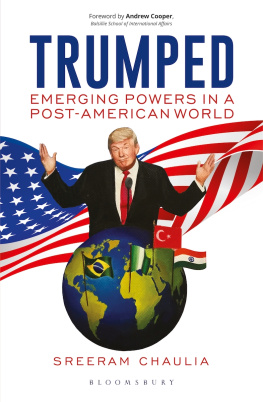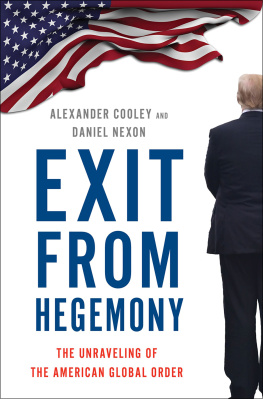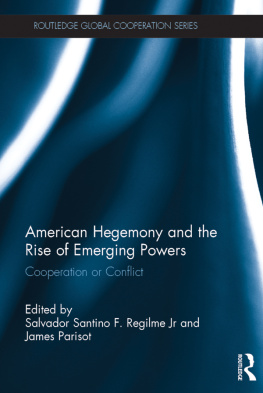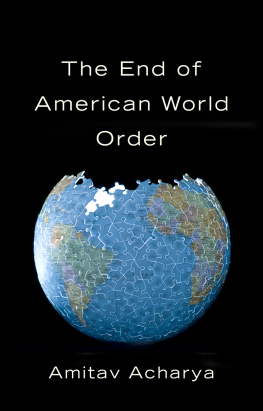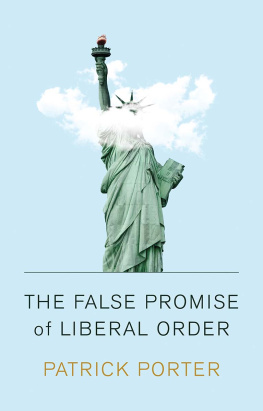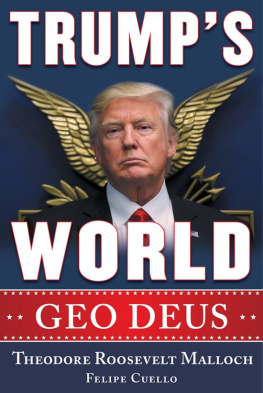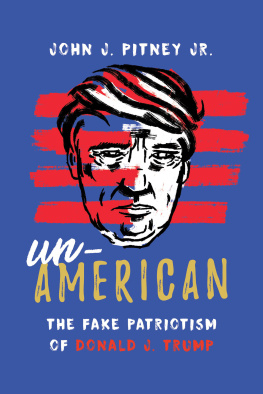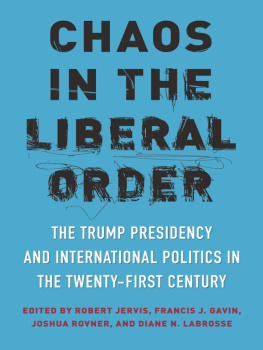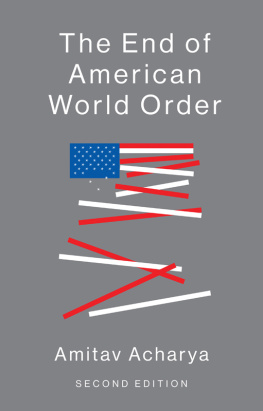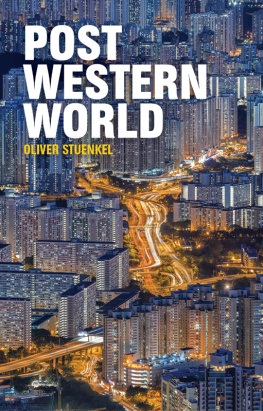Table of Contents

There is no shortage of Western-centric critiques of Donald Trump from the vantage points of New York, Washington, London, Brussels and Paris. Nor is there any lack of Chinese analyses of what the great disruptor means for them. Leading Indian scholar and pundit of international affairs Sreeram Chaulia takes a different approach. His barnstorming book looks at Trump from the perspective of Ankara, New Delhi, Brasilia and Abuja. The results will surprise you.
Brendan Simms, Professor in the History of International Relations, University of Cambridge, United Kingdom, and co-author of Donald Trump: The Making of a World View
The rise of Donald Trump and the return of emerging powers to the forefront of world politics are markers of our time. Until now, they have been treated separately. In this pioneering work, Sreeram Chaulia brings them together into a seamless whole, highlighting the many ways in which Trumps foreign policy opens new vistas for rising powers. Richly documented and brilliantly written, Trumped is a must-read for all those keen to understand the changing dynamics of todays world.
Jorge Heine, Wilson Center Global Fellow and former Ambassador of Chile to India, China and South Africa
This compelling book convincingly argues that, in our surreal Trumpian world, the US-led liberal international order is at a revolutionary inflection point. Skilfully moving beyond standard Eurocentric scholarly and policy debates, Sreeram Chaulia brilliantly weaves together views from key emerging powers of the Global South to see how they understand, and, in time, with correct political choices may seize the opportunity to construct an alternative world order built on endogenous structures and collective action.
Karim Makdisi, Associate Professor of International Politics, The American University of Beirut, Lebanon
There is much scholarship in the West about the demise of the liberal international order, and many mourn its end. Indeed, there is still much in that order that should be preserved, but there is also much that needs to (and will) change. The rest of the world is rising, assuming responsibilities and displaying leadership. The analysis and the vision of this changing world needs to be told by scholars from those regions. Sreeram Chaulias work on the rise of powers outside the conventional USChina duet does just that, providing much-needed nuance and illustrating that the crafting of a new global order is not the domain of the most powerful states alone.
Elizabeth Sidiropoulos, Chief Executive, South African Institute of International Affairs, Johannesburg
Can the emerging powers step up their act in maintaining global stability and filling the void in global leadership as the US-led liberal international order crumbles? This book offers a timely corrective to the usual Western and China-centric perspectives on this question, and should be invaluable to academics, policymakers and the media.
Amitav Acharya, Professor of International Relations, American University, Washington DC, and author of The End of American World Order
Trumped
Trumped
Emerging Powers in a
Post-American World
Sreeram Chaulia

BLOOMSBURY INDIA
Bloomsbury Publishing India Pvt. Ltd
Second Floor, LSC Building No. 4, DDA Complex, Pocket C 6 & 7,
Vasant Kunj New Delhi 110070
BLOOMSBURY, BLOOMSBURY INDIA and the Diana logo are trademarks of Bloomsbury Publishing Plc
First published in India 2019
This edition published in 2019
Copyright Sreeram Chaulia 2019
Illustration Sreeram Chaulia 2019
Sreeram Chaulia has asserted his right under the Indian Copyright Act to be identified as the Author of this work
All rights reserved. No part of this publication may be reproduced or transmitted in any form or by any means, electronic or mechanical, including photocopying, recording or any information storage or retrieval system, without the prior permission in writing from the publishers
Bloomsbury Publishing Plc does not have any control over, or responsibility for, any third-party websites referred to or in this book. All internet addresses given in this book were correct at the time of going to press. The author and publisher regret any inconvenience caused if addresses have changed or sites have ceased to exist, but can accept no responsibility for any such changes
ISBN: HB: 978-9-3891-6592-0; eBook: 978-9-3891-6594-4
2 4 6 8 10 9 7 5 3 1
Created by Manipal Digital Systems
Bloomsbury Publishing Plc makes every effort to ensure that the papers used in the manufacture of our books are natural, recyclable products made from wood grown in well-managed forests. Our manufacturing processes conform to the environmental regulations of the country of origin
To find out more about our authors and books visit www.bloomsbury.com and sign up for our newsletters
To emerging powers, which must heed the call of destiny
Contents
As Sreeram Chaulia highlights in his exhilarating book, US President Donald Trump deals with the world in a disruptive and unpredictable manner. But his casting of villains is clear. Through his prism, a soft and weak European Union is stigmatised as being over-regulated. And an assertive China is accused of being hyper-competitive.
But the main villain for Trump remains the liberal international order built up by an older US elite, along with the institutional architecture at its core: the United Nations, the International Financial Institutions and the World Trade Organization.
Some of this critique is based on a transactional view of the world. The US is being taken for a ride by allies and countries in which it has shared interdependence. Old arrangements, such as the North Atlantic Treaty Organization, fall into this category, as do newer potential regional deals, such as the Trans-Pacific Partnership.
In this sense, at least, Trumps emotions are no differentexcept in scale and intensitythan some earlier signs of pushback. What is different is the context of Trump as pivotal to a new era of populism. As Sreeram Chaulia carefully denotes, this shifts the challenge from an exclusively external locus to one that has an important internal dimension. For Trump, formal institutions, interpreted as a constraining force, are part of an entrenched repertoire of a self-serving and controlling establishment.
On top of all this, of course, is the serious threat to a contemporary diplomatic culture that Trump presents. In contradistinction to the twenty-first-century diplomatic culture symbolised by the Barack Obama administration, the Trump operational style is focused on personalism, the use of bilateral one-on-ones, constant surprises, and direct and highly targeted communication with his domestic supporters. At its core is a winner-take-all approach to any external engagement, in which asymmetrical structural advantages are translated into leverage. The goal is not to stabilise institutions or to enhance followership or goodwill among strategic allies or commercial partners but to extract material advantages on a self-help basis. The audience is exclusively domestic communities, with a great onus on publicising successful outcomes (or wins) with their interests in mind.
Sreeram Chaulia is well versed in the debates in the US and Europe about the implications of this challenge. However, this rich book is not preoccupied with going over these Western-centred critiques or, for that matter, what the Chinese state and academic commentators have to say about Trump as the great disruptor.

